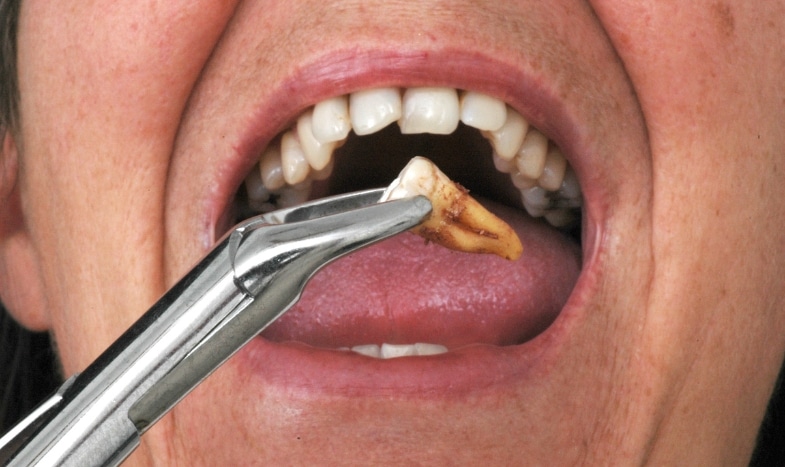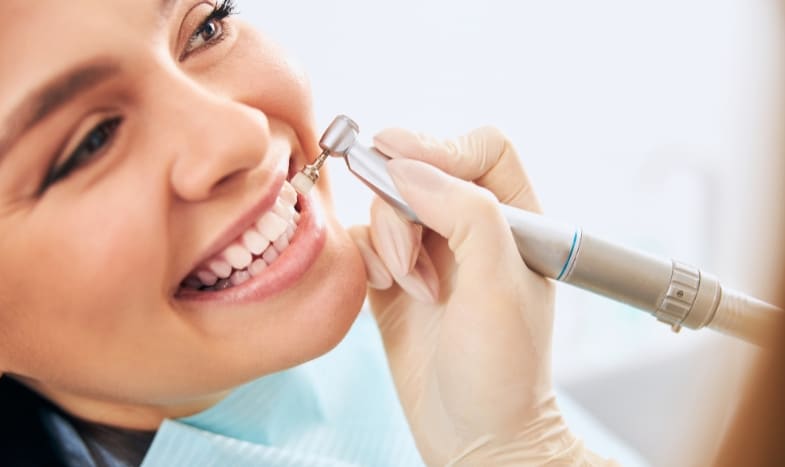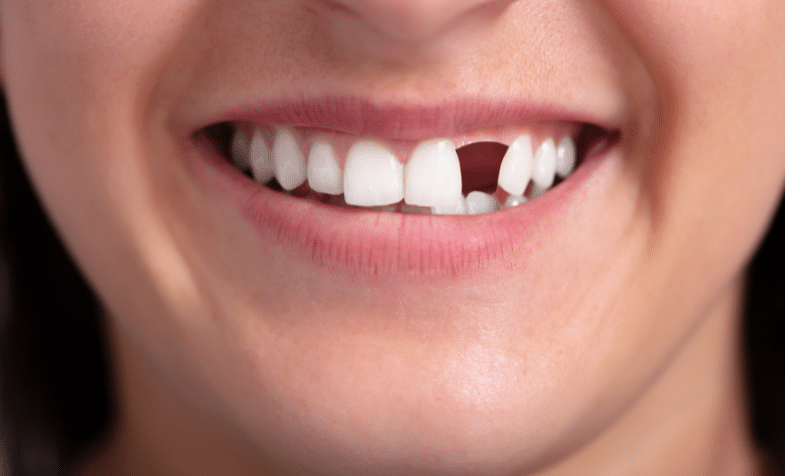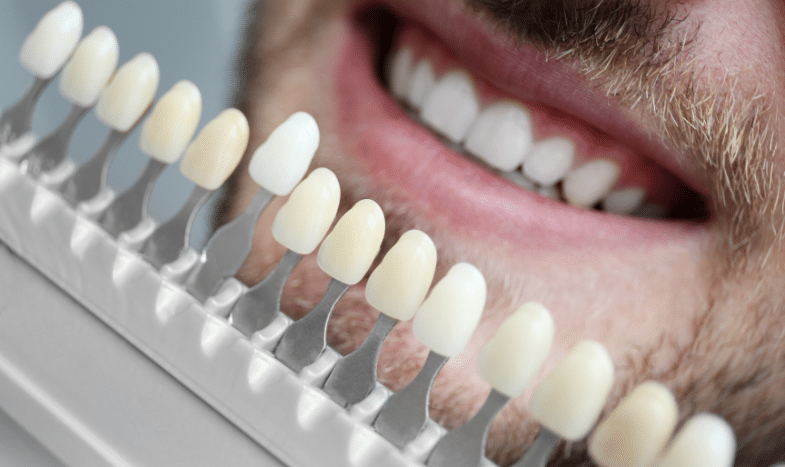
How Long Does It Take For A Loose Tooth To Tighten Back Up?
Have you ever noticed a tooth that feels slightly loose? It can be a worrying experience, sparking questions about what is going on and what to do next.
Loose teeth are common, especially in children, but when it happens to adults, the concern is real. These teeth can occur for several reasons, including trauma, gum disease, or even grinding your teeth at night. Understanding the causes is crucial for knowing how to address the issue.
This blog will look at how long it usually takes for a loose tooth to get back into place. It will also cover the variables that affect this process and the actions you may take to promote recovery.
Understanding Loose Teeth
Common Causes
- Trauma or Injury
Accidental impacts can cause a tooth to become loose. This might happen during sports or other physical activities. The tooth may shift slightly, causing discomfort and movement. In order to stop additional harm, immediate attention is essential. - Gum Disease (Periodontitis)
One of the main reasons why individuals have loose teeth is gum disease. Plaque accumulation is the first step, and it can cause infection and inflammation. Over time, the supporting structures of the teeth, including the gums and bone, can deteriorate, causing the teeth to loosen. - Bruxism (Teeth Grinding)
Grinding your teeth, especially at night, puts excessive pressure on them. This constant force can weaken the supporting structures, making your teeth feel loose. Bruxism often goes unnoticed until significant damage occurs. - Orthodontic Adjustments
After braces or other orthodontic treatments, it is normal for teeth to feel loose. This is because the teeth are being moved to new positions. The looseness usually resolves as the teeth settle into their new alignment.
Symptoms of a Loose Tooth
- Pain
A loose tooth might cause discomfort, especially when chewing or touching it. Depending on the reason, the discomfort may be minor or severe. - Swelling
Inflammation of the gums around the loose tooth is common. This can lead to visible swelling and sensitivity in the affected area. - Tooth Mobility
The most obvious sign is the movement of the tooth. You might notice it shifting slightly when you touch it with your tongue or fingers. In more severe cases, the tooth might visibly wobble.
How Long Does It Take for a Loose Tooth to Tighten?
Typical Timeframes
There is a broad range in how long it takes for a loose tooth to get tight again. For minor cases, especially when the cause is trauma or orthodontic adjustments, the tooth might stabilize within a few weeks.
However, if gum disease is the culprit, the process could take several months, depending on the severity of the condition and the effectiveness of treatment.
Factors Influencing Recovery
- Age
Recuperation time is significantly influenced by age. Younger individuals generally heal faster than older adults. This is because younger bodies tend to have more robust regenerative capabilities. For children, a loose tooth might resolve quickly, especially if it’s related to normal tooth development. - Severity of Looseness
The degree of looseness also affects the recovery time. Mild cases, where the tooth is only slightly mobile, tend to heal faster. On the other hand, severe looseness, where the tooth can move significantly, may require more time and possibly even dental intervention. - Underlying Causes
The root cause of the looseness is a crucial factor. For example, if the tooth is loose due to minor trauma, it might tighten up within weeks.
However, if gum disease is the cause, it could take longer, as the underlying infection and inflammation need to be controlled first. In such cases, ongoing treatment is essential for the tooth to regain stability.
- Oral Hygiene
Good oral hygiene can significantly speed up the recovery process. The amount of germs in the mouth can be decreased by using an antimicrobial mouthwash, flossing, and brushing on a regular basis. This, in turn, can promote healing and prevent further complications.
Conversely, poor oral hygiene can delay recovery and even worsen the condition, leading to potential tooth loss.
Treatment Options
Professional Dental Care
When dealing with a loose tooth, professional dental care is essential. A dentist is qualified to evaluate the condition and suggest the best course of action. For minor cases, they might suggest a wait-and-see approach.
However, for more severe looseness, intervention might be necessary. Common treatments include:
- Splinting
This involves bonding the loose tooth to neighboring teeth to provide support. Splinting can help stabilize the tooth while the underlying structures heal. - Scaling and Root Planing
For gum disease-related looseness, deep cleaning procedures like scaling and root planing are often recommended. These procedures remove plaque and tartar buildup, reducing inflammation and allowing the gums to heal. - Periodontal Surgery
In advanced cases of gum disease, surgery might be necessary. This could involve reshaping the gums or even bone grafting to restore lost tissue and support the tooth.
Home Care Tips
Apart from seeking medical attention from a professional, the following actions can be taken at home to aid in the healing process:
- Avoiding Hard Foods
Hard foods can put additional stress on a loose tooth, potentially worsening the condition. Stick to soft foods while the tooth stabilizes. - Maintaining Good Oral Hygiene
Brush twice a day and floss daily to keep your mouth clean. Pay special attention to the area around the loose tooth to prevent plaque buildup. - Using an Antimicrobial Mouthwash
Rinsing with an antimicrobial mouthwash can help reduce bacteria in the mouth. This lowers the risk of infection and supports healing. - Taking Prescribed Medications
If your dentist prescribes antibiotics or other medications, be sure to take them as directed. These medications can help control infection and promote recovery.
A loose tooth can be a cause for concern, but with the right care, it is often treatable. The time it takes for a tooth to tighten back up depends on several factors, including the cause, severity, and your oral hygiene habits.
While it can take a few weeks to several months for a tooth to stabilize, proactive treatment can make a significant difference. If you notice a loose tooth, consult your dentist as soon as possible. They can provide personalized advice and treatment to help your tooth heal properly. Remember, early intervention is key to preventing further complications and ensuring a healthy smile.




